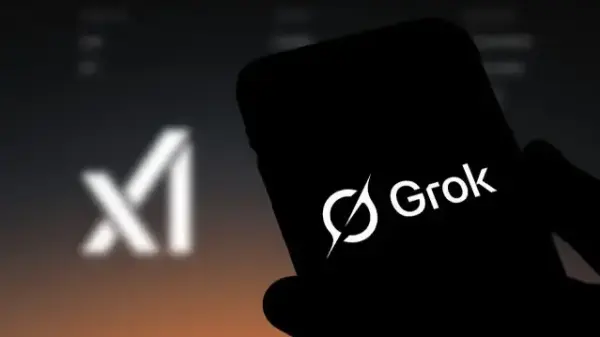In a rapidly shifting digital landscape, artificial intelligence (AI) is fundamentally transforming how brands engage with consumers. Traditional search engine optimization (SEO) approaches are being overshadowed by emergent strategies like generative engine optimization (GEO) and AI search optimization (ASO). A recent survey by Search Engine Land involving 2,000 consumers revealed that a striking 82% found AI-powered search to be more helpful than conventional methods, underscoring the urgency for marketers to embrace this evolution.
The rise of generative AI tools such as ChatGPT, Perplexity, and Claude is pivotal in this transformation. These tools not only answer queries but synthesize information in a conversational manner, reflecting a shift from optimizing for traditional search engine rankings to being recognized by AI models. The same study from Search Engine Land, conducted with Fractl, meticulously examined search trends, hiring patterns, and consumer behavior to navigate this new landscape.
Hiring data reveals that job postings for GEO-related roles have surged a remarkable 300% in the past year, according to LinkedIn. In stark contrast, traditional SEO positions are plateauing, indicating a shift in corporate strategies that prioritize content suitable for ingestion by large language models (LLMs).
One of the core challenges in this new paradigm is understanding how AI search diverges from conventional engines. Unlike Google’s algorithms that rank pages based on relevance and authority, generative engines produce synthesized responses that often draw upon multiple sources without providing direct links. This phenomenon has given rise to what experts term the “AI visibility gap,” posing risks for brands that fail to adapt.
Influential voices on social media platforms like X (formerly Twitter) are echoing this sentiment. Viral threads from industry leaders, including those affiliated with a16z, proclaim that “SEO is slowly losing its dominance. Welcome to GEO.” This highlights a paradigm shift towards creating content that stands out and is inherently cite-worthy in AI discussions.
In a recent article titled “AI Search Reshapes SEO, Fueling GEO Gold Rush”, Business Insider noted that tech giants are actively exploring these emerging strategies. Estimates suggest that generative search could revolutionize the market, impacting up to $750 billion in revenue by 2028, as reported by McKinsey & Company.
Consumer Preferences and Brand Strategies
Consumer preferences are driving this shift. The research from Search Engine Land indicates that 60% of participants utilize AI search tools weekly, favoring them for their speed and contextual depth. This has led to a fragmentation of search behavior across platforms, a trend discussed in a PYMNTS.com report on the transition from SEO to GEO.
For brands, this necessitates a combination of traditional and innovative tactics, particularly the creation of authoritative and quotable content favored by AI models. A study by Stan Ventures found that 90% of businesses are concerned about losing organic visibility due to AI, prompting a shift towards GEO practices that focus on semantic relevance and entity recognition.
Marketers on X share insights, including the use of “mega prompts” to verify brand recommendations in AI tools, emphasizing the need for proactive adaptation to this new landscape. This grassroots knowledge aligns with formal research, creating a consensus that neglecting GEO could lead to obsolescence.
Future Prospects and Challenges
The ongoing debate regarding terminology—SEO, GEO, or ASO—reflects deeper uncertainties in the marketing landscape. The analysis from Search Engine Land shows that GEO is gaining traction, appearing in 15% more job postings than ASO, according to hiring data from Indeed and Glassdoor. Some industry experts argue that ASO better encapsulates the AI-specific focus akin to app store optimization.
Despite the promise of GEO, challenges remain, particularly ethical concerns regarding AI hallucinations which can lead to inaccurate citations that may damage brand reputations. Moreover, regulatory pressures are likely to shape the field as governments scrutinize AI’s influence on information reliability. A thread on X by Search Engine Land urges continuous research to address these issues.
To navigate this evolving landscape, brands must adopt multifaceted strategies. A guide from Innermedia on “AI Ready SEO” recommends auditing content for AI compatibility and focusing on structured data and natural language processing. Tools like Rank Prompt and Profound, highlighted in Anderson Collaborative’s list of best AI SEO tools for 2025, facilitate tracking visibility across LLMs.
As brands adapt to the new realities of AI-driven search, those that master GEO and its variants will likely lead the pack, turning algorithmic challenges into competitive advantages.
 Google Withdraws ‘Dear Sydney’ AI Ad Amid Public Backlash Over Authenticity Concerns
Google Withdraws ‘Dear Sydney’ AI Ad Amid Public Backlash Over Authenticity Concerns AI Adoption Reshapes Marketing Roles in Singapore, Demands for Senior Specialists Surge
AI Adoption Reshapes Marketing Roles in Singapore, Demands for Senior Specialists Surge AI Content Creation Market Hits $3.51 Billion as Tools Transform Digital Storytelling
AI Content Creation Market Hits $3.51 Billion as Tools Transform Digital Storytelling 12AM Agency Reveals Big-AI Upgrade to Combat Local Business Visibility Crisis in AI Era
12AM Agency Reveals Big-AI Upgrade to Combat Local Business Visibility Crisis in AI Era Mindtrip Partners with The Bahamas to Launch AI-Powered Personalized Travel Itineraries
Mindtrip Partners with The Bahamas to Launch AI-Powered Personalized Travel Itineraries





























































